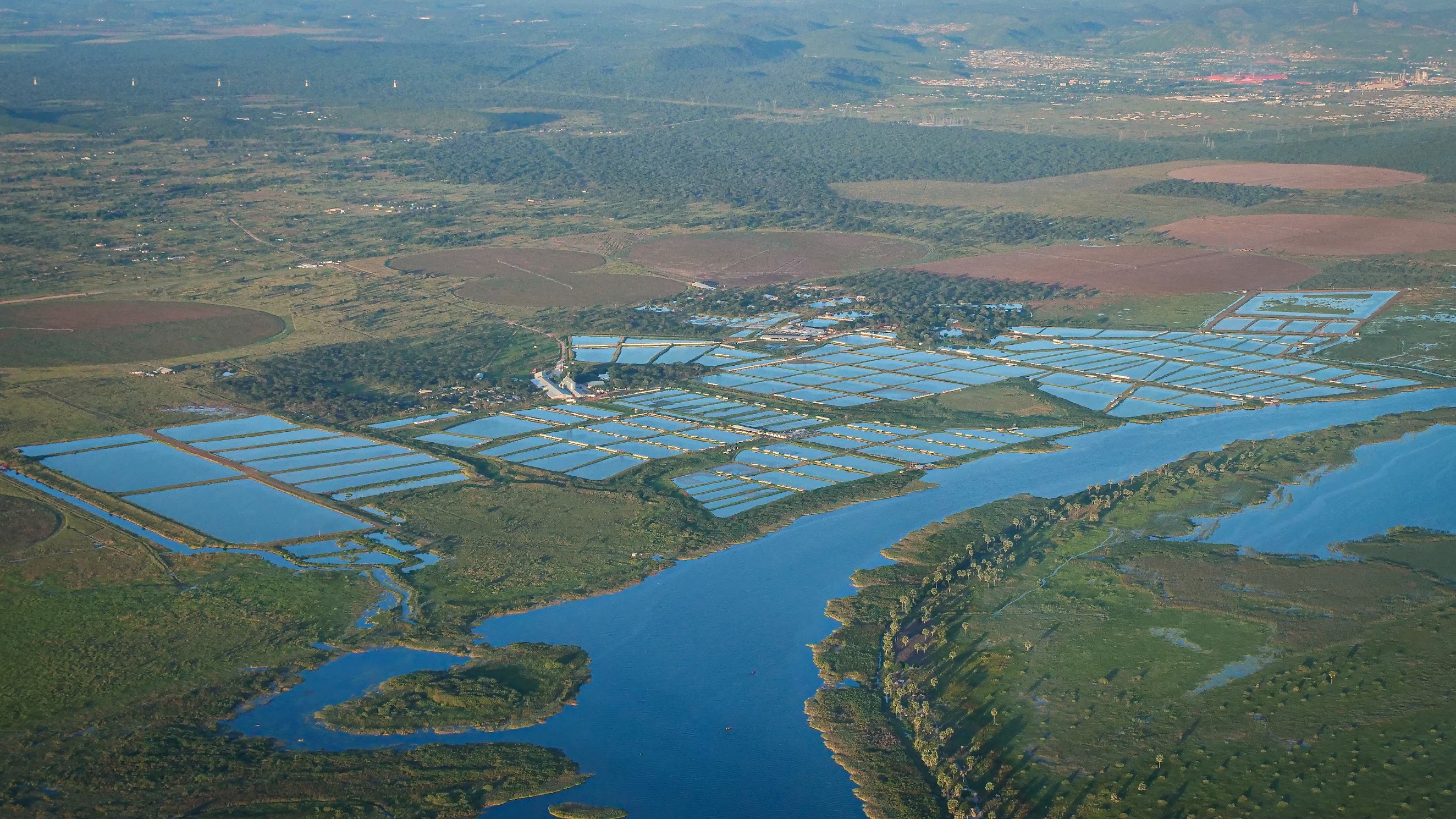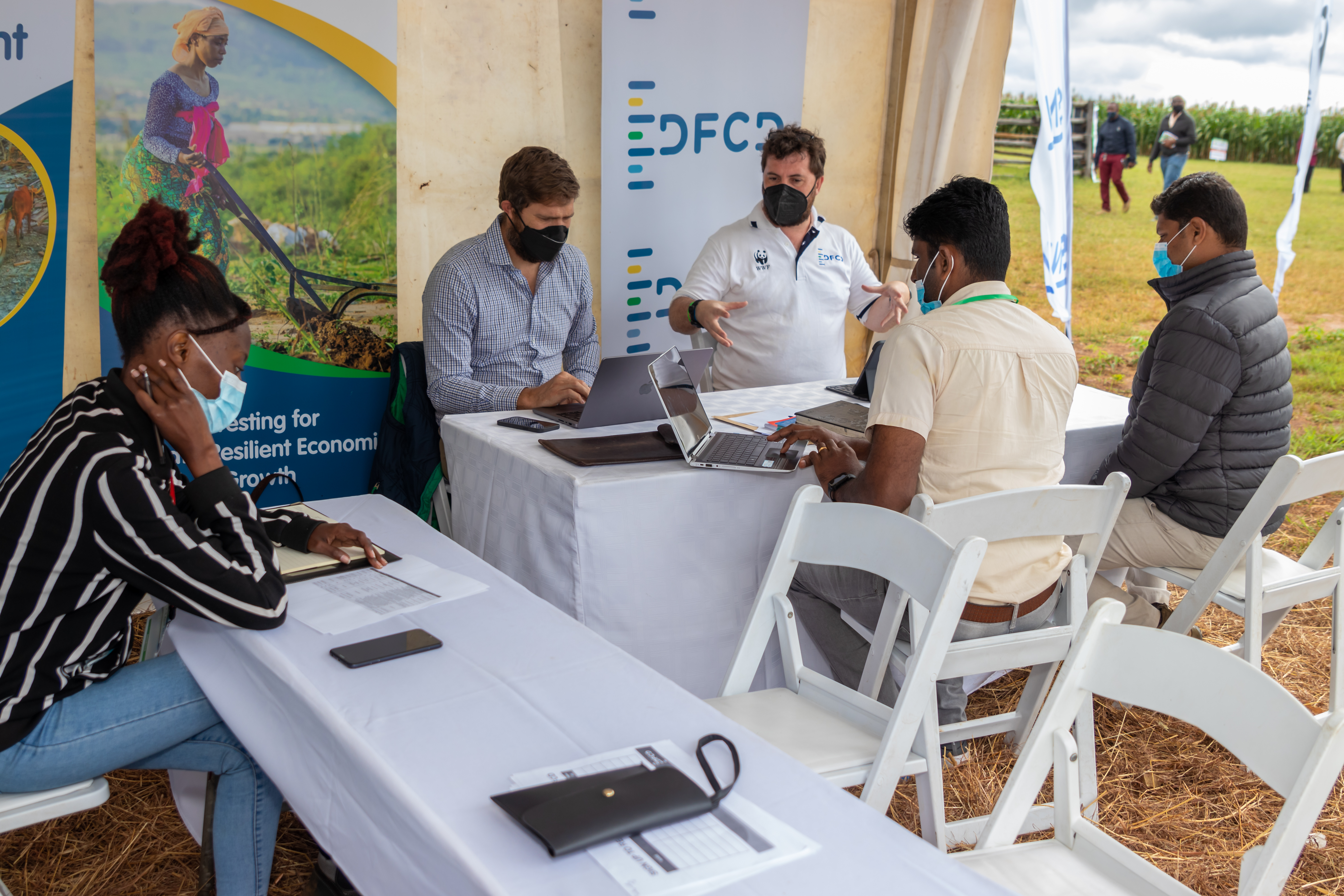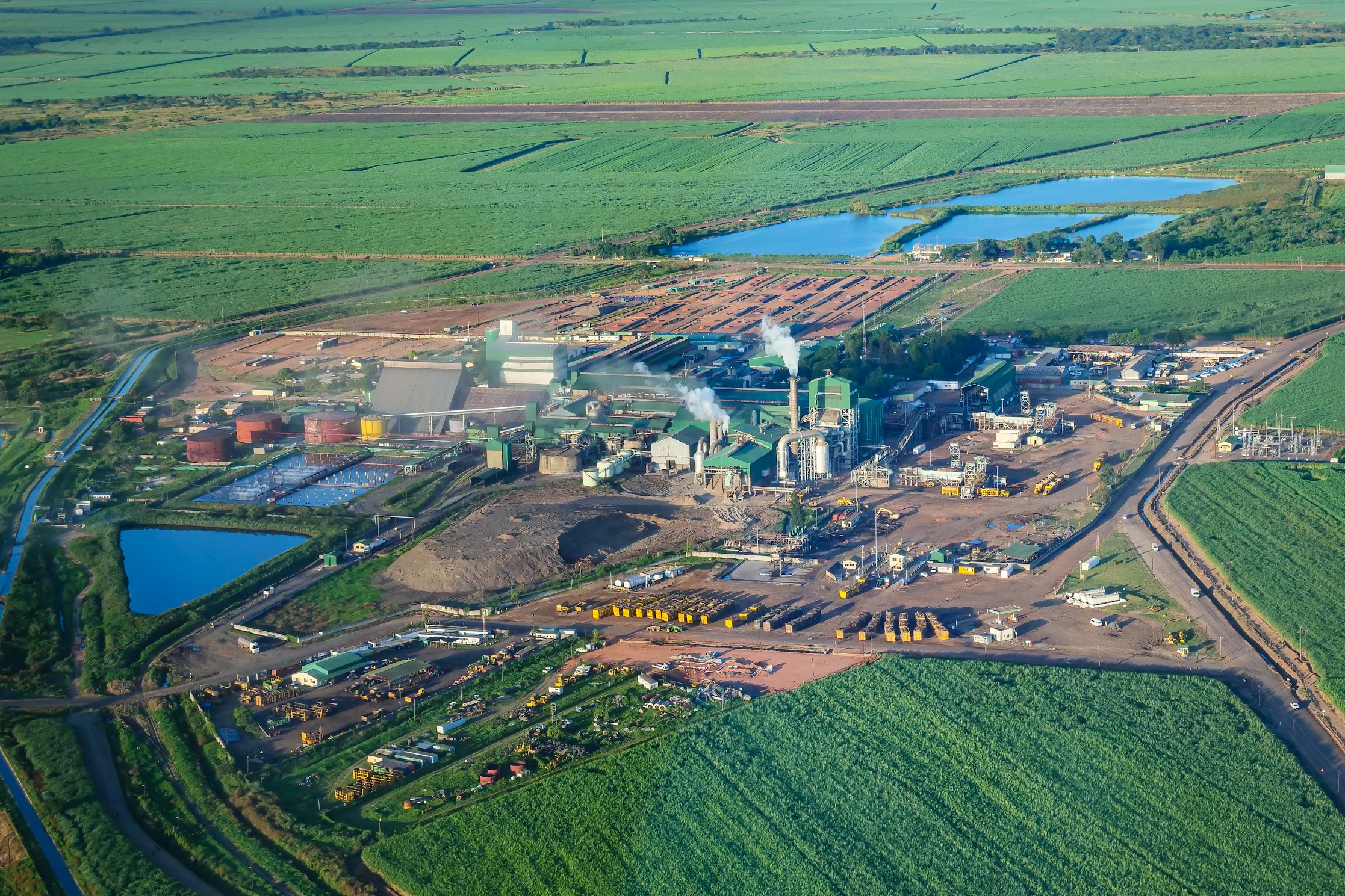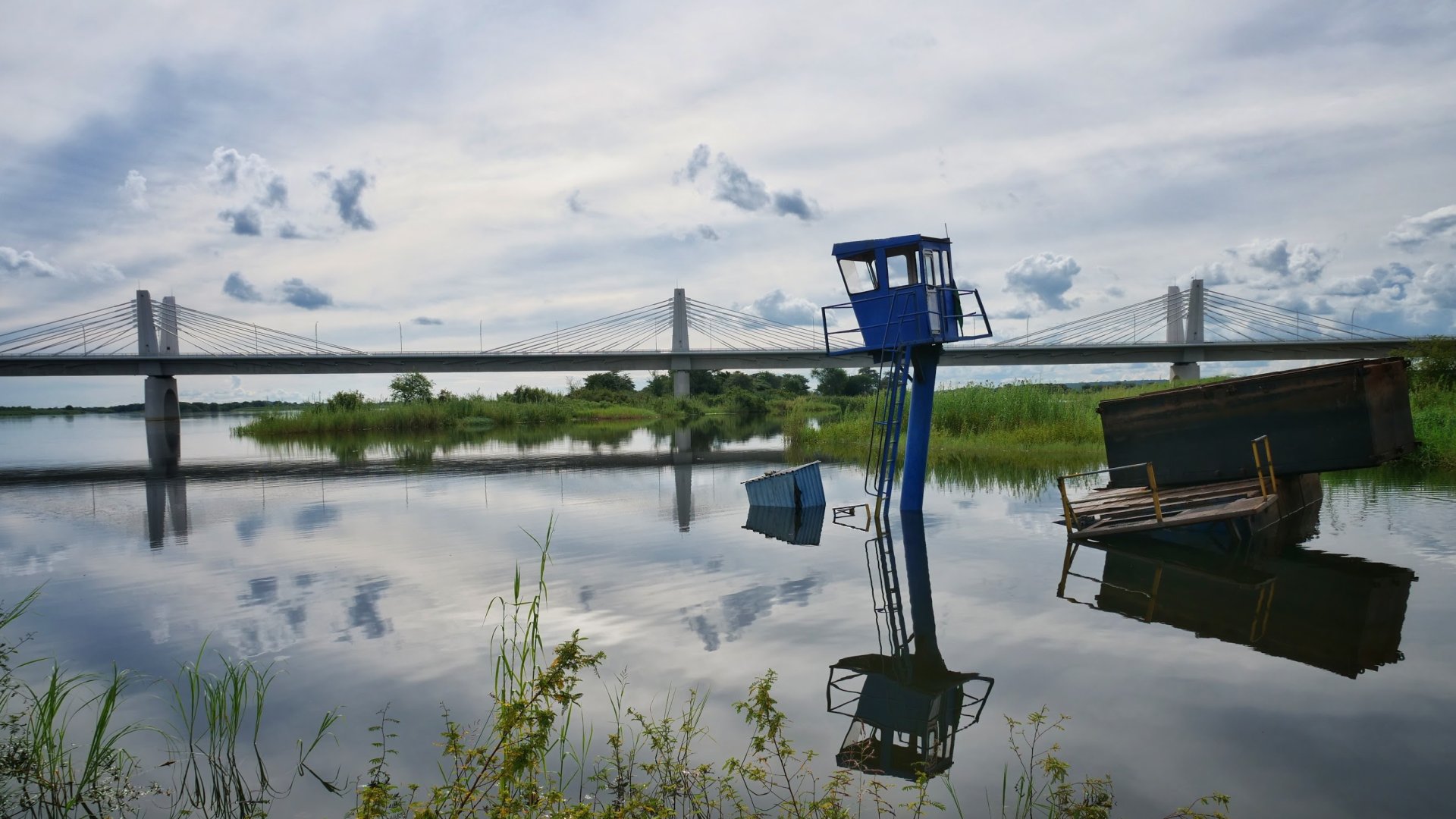The Origination Facility in practice: Zambia
The DFCD is an innovative climate adaptation fund that aims to invest in projects with a landscape focus. It is a blended finance vehicle that utilizes expertise across the impact investment ecosystem (NGOs, investment management, and development finance). FMO co-manages the fund together with three other partners: WWF, SNV and Climate Fund Managers. FMO oversees the fund’s Land Use Facility (agriculture and forestry), Climate Fund Managers manages the Water Facility (water infrastructure), and WWF and SNV source bankable projects for both facilities by managing an Origination Facility. WWF and SNV are experienced in helping projects develop from ideas to strong bankable businesses that support local climate adaptation needs. They do this using grants and technical assistance facilities.
Why the DFCD seeks to make an impact in Zambia
Last month I had the pleasure of traveling to Zambia to visit several of the Dutch Fund for Climate and Development (DCFD) projects. WWF and SNV’s local staff in Zambia gave me a warm welcome, and the friendly and dynamic spirit of the country immediately struck me as a suitable place for entrepreneurship.
Zambia is classified by the United Nations as a Least Developed Country (LDC), as the country’s gross national income per capita was less than ,004 in 2016. Per our mandate, the DFCD is required to allocate at least 25% of its funding to projects in LDCs.
The DFCD specifically seeks agriculture projects in Zambia which align with the needs of a landscape such as the Kafue Flats. This is an important ecological region, characterized by flood plains surrounding the Kafue River. Many people in Zambia depend on the Kafue Flats, with the region supplying an estimated 90% of the country’s sugar cane production, producing 50% of the nation’s hydroelectricity, and 20% of the cattle herd.

The Kafue Flats are an important economic and ecological region, with many communities dependent on it. The DFCD Origination Facility staff are amongst others looking at sustainable fishery opportunities.
From an environmental and climate-adaptation perspective, Zambia is an interesting country faced with several interconnected challenges. For one, water stress in Zambia is high. Many crops are highly dependent on irrigation. It is also a risk to electricity supplies, as most power is produced by hydro plants. Moreover, Zambia faces high levels of deforestation (it has lost 7.8% of its tree cover since 2000[1]), partly due to charcoal being an important cooking fuel.
Connecting with local players in Zambia

DFCD Origination Facility staff spoke to many entrepreneurs interesting in collaborating with the DFCD at the Zambian Agri Tech expo.
During my visit, I was able to join WWF and SNV at the Zambian Agri Tech expo. It was special to have the chance to learn from such a diverse group of stakeholders, from smallholder farmers to larger agriculture business owners and many others in between.
I could see that the DCFD and, specifically, the Origination Facility are a central part of this ecosystem. While WWF and SNV have strong networks in Zambia, I observed that the DFCD was already becoming a well-recognized partner as well, complementing the existing network of partners involved in scaling entrepreneurial climate adaptation solutions. WWF and SNV staff provided workshops on climate-smart farming and DFCD matchmaking sessions were organized, attracting over 100 participants.
The local WWF and SNV teams engaged with many of the larger agricultural producers in the region, and the relationships they have are extremely valuable.
Numerous climate business opportunities

Sugar is an important export industry in Zambia and around the Kafue Flats in particular. Sugar crops typically also use a lot of water.
The conversations I had with Zambian farmers on climate change showed me that this is far more than an abstract future threat in Zambia. Droughts are a serious risk that already impact household incomes and limit economic development. “We’ve all seen the effects of climate change” one smallholder farmer answered when I asked why he needed DFCD capital for his agro-forestry project.
Luckily, impactful business opportunities are abundant: from individuals that use agricultural waste to make cooking briquettes and large input providers eager to increase the impact in their value chains, the entrepreneurs of the region have already started working on high quality business solutions to the issues faced by Zambians, and our job is to support their growth through each key stage.
Fit with the DFCD is challenging
The challenge is to identify projects which fit the DFCD’s specific, impact-oriented investment requirements and significantly improve the resilience of the surrounding landscape.
Even though the DFCD can provide grant funding to early-stage climate projects, the fund still seeks to invest in partners with a commercial track record, as to ensure any capital invested is also returned. In Zambia this is challenging, given that many businesses are relatively young; they have had less time to build a track record. This also meant businesses have limited readily available cash flows to repay loans.
Finding investments that contribute to the surrounding landscape means that projects align with local community needs. WWF identifies these needs by participating in multistakeholder discussions and conducting thorough research involving relevant parties. Reducing water stress is now identified as a key need, meaning that financing the typical water-intensive agricultural expansions initiatives is not a good fit for the DFCD.
Next steps for the DFCD in Zambia
As a next step, the DFCD team is now working to turn opportunities identified by the Origination Facility in Zambia into actual investments which will be taken up by the land use or water facilities.
One project, “KASCOL”, seems to be well on track towards “graduation”. This means that FMO will conduct due diligence for a potential investment by the DFCD Land Use Facility. The project envisions providing finance to a cooperative that depends on water from the Kafue River to enable its members to convert to climate-smart drip irrigation, which reduces water stress and increases crop yield. An ideal fit with the landscape!
Additional DFCD grants and finance are still available for new projects. Of particular interest to us are collaborations with agriculture-related organizations that can support smaller entrepreneurs, ensuring the DFCD can indirectly also support smaller businesses with a limited track record.
If you know a project in Zambia, please reach out to us, so I can connect you with one of my local Zambia colleagues.

